Have you ever looked in the mirror and wished for shoulders that are not only toned but also strong and confident? You’re not alone—many of us find ourselves struggling to achieve that desired definition in our shoulders, often feeling like we’re putting in the effort but not seeing the results. In this article, we’ll explore various workouts specifically designed for more toned shoulders, addressing the challenges that come with building strength in this area. From beginner-friendly exercises to tips on proper form and technique, you’ll discover practical ways to elevate your shoulder game. So if you’re ready to redefine your upper body and boost your confidence, keep reading to find exercises that might just transform the way you see yourself.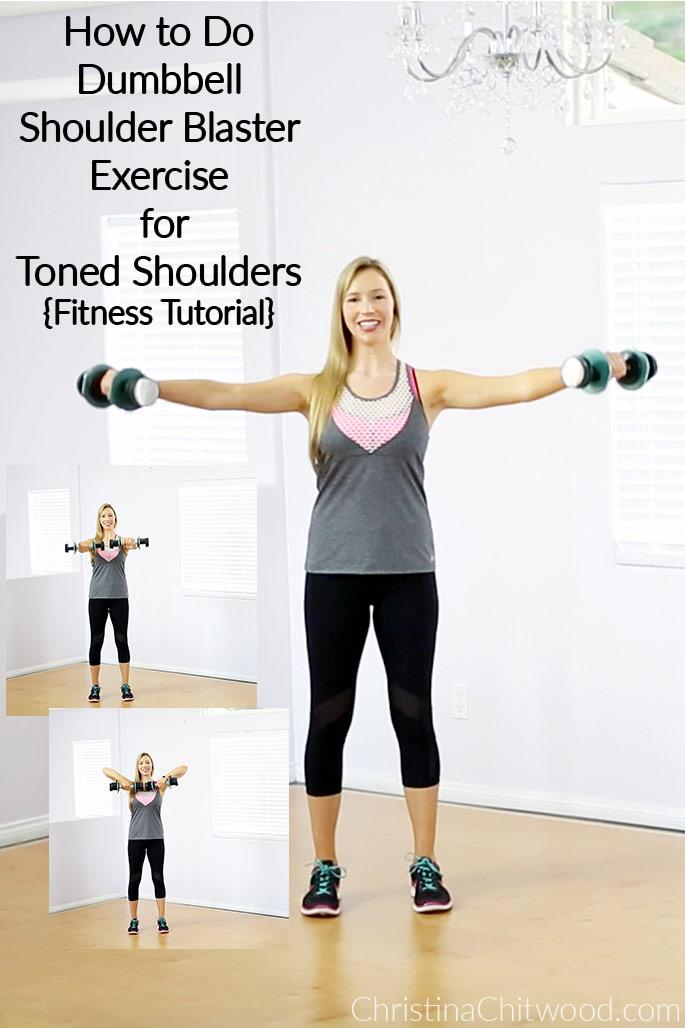
Best Exercises for Toned Shoulders
When it comes to achieving sculpted shoulders, variety is key! The humble set of dumbbells can become your best friend. Try incorporating exercises like dumbbell shoulder presses, lateral raises, and front raises into your routine. Not only do these movements engage your shoulder muscles, but they also help in improving shoulder stability and mobility. Imagine how great it feels to lift those bags of groceries or rearrange your furniture with ease—strengthening your shoulders makes everyday tasks easier. Plus, remember to mix in bodyweight exercises like push-ups and plank-to-push-up transitions, which work your shoulders dynamically while engaging your core.
Have you ever wondered why some people seem to have effortlessly toned shoulders? It’s not just about lifting heavy weights but also about consistency and form. Research suggests that incorporating compound movements can lead to better muscle activation. For instance, the overhead press not only targets your deltoids but also engages your core and triceps. It’s a win-win! Always prioritize proper form over the amount of weight lifted. Not only can bad form lead to injuries, but it also limits the effectiveness of your workouts. Engaging the right muscle groups means you’re not just working out; you’re working smart!
Lastly, don’t underestimate the power of recovery. It’s tempting to hit the gym every day, but your muscles need time to repair and grow stronger. Implement strategies like rest days and active recovery sessions, which can include gentle stretching or yoga. Consider it an investment in your progress! Studies indicate that rest can enhance muscle strength and growth significantly. So, next time you feel guilty about not working out, remind yourself that recovery isn’t just a luxury; it’s an essential element of any successful training regime. Balancing these workouts with proper nutrition—think proteins and healthy fats—can fuel your gains and support that coveted toned look!
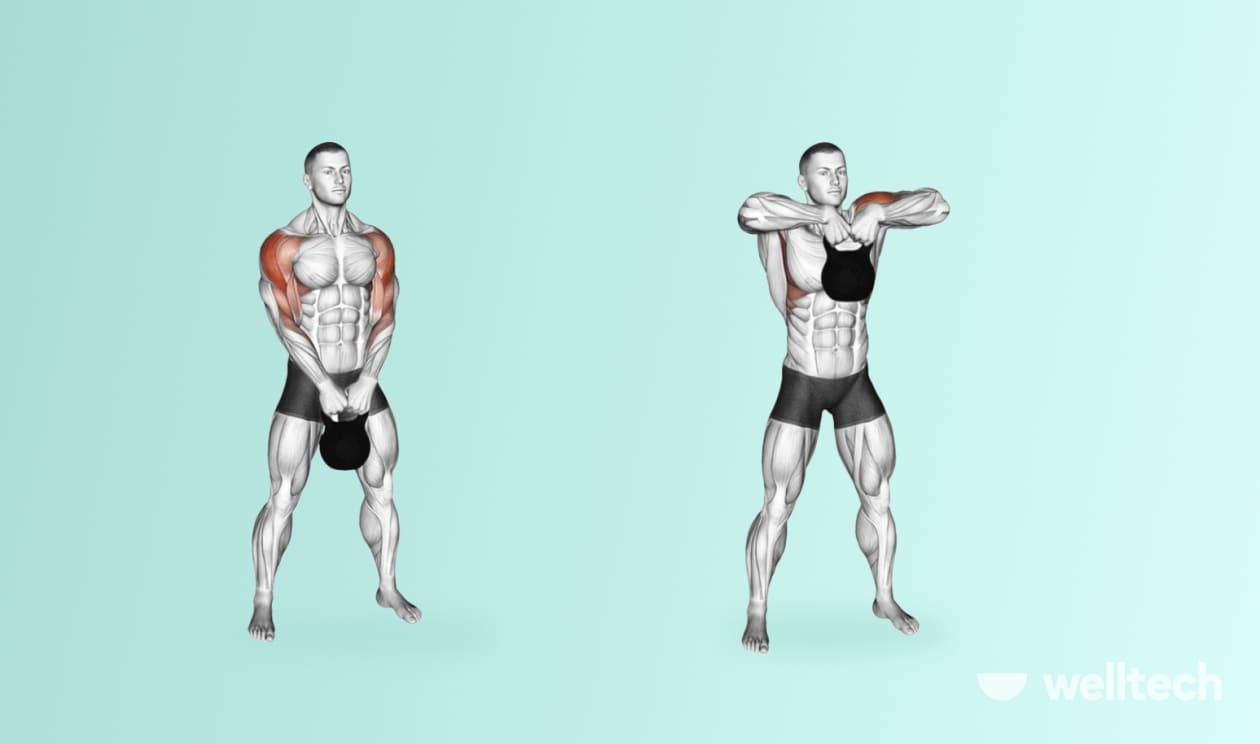
Targeting Front, Lateral, and Rear Delts
When it comes to sculpting your shoulders, it’s essential to understand the impact of targeting the front, lateral, and rear deltoids. Each part plays a distinct role in achieving that sought-after capped shoulder look. Think of it as a three-part harmony; if one section is neglected, the overall aesthetic falls flat. For instance, the front deltoids are primarily engaged during pressing movements. Performing exercises like the barbell overhead press or dumbbell front raises effectively lights a fire in this area. Have you ever noticed how well-defined shoulders can make a shirt fit more flattering? It’s no coincidence!
Now, let’s pivot to the lateral delts—these are the unsung heroes of shoulder width. When well-developed, they give your upper body that broad, V-taper look. Incorporating lateral raises or overhead dumbbell presses into your routine not only activates these muscles but also enhances overall shoulder stability. Did you know that a study published in the Journal of Strength and Conditioning Research found that lateral raises activate the deltoids more effectively than many compound lifts? This insight underscores the significance of isolation movements; give your lateral deltoids the attention they deserve.
Lastly, let’s shed light on the rear deltoids, often the most overlooked area in training routines. A robust rear deltoid focus not only improves posture but balances the strength of your shoulders, reducing the risk of injuries. Don’t underestimate the value of exercises like face pulls and rear delt flys. These can seriously boost your shoulder’s definition while also enhancing your upper back’s stability. In fact, in mixed martial arts and other contact sports, strong rear delts can help protect against shoulder injuries during grappling. So, the next time you’re at the gym, dedicate a solid portion of your workout to these muscles—they deserve as much love as the rest!
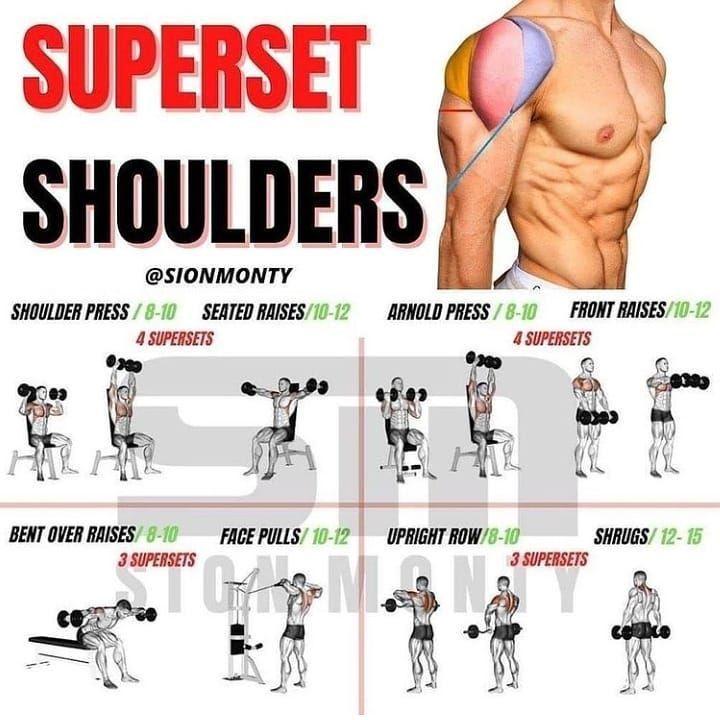
Essential Equipment for Shoulder Workouts
When it comes to sculpting impressive shoulders, having the right equipment can make all the difference. Imagine stepping into your home gym or a commercial fitness center, and there it is: the trusty dumbbell. It’s versatile, user-friendly, and perfect for a variety of shoulder exercises. From shoulder presses to lateral raises, these weights can adapt to your fitness level, making them a staple for anyone looking to tone up. Have you ever considered how using a single dumbbell can enhance your workout? It allows for unilateral training, which not only builds strength evenly but also helps identify and correct muscle imbalances.
Next on the list is the . These simple, stretchy tools may not look imposing, but they pack a punch when it comes to shoulder workouts. They provide variable resistance throughout the movement, which challenges your muscles in a way that free weights sometimes can’t. Perhaps you’ve felt that satisfying burn during a band pull-apart or a face pull? That’s your muscles working hard to stabilize while keeping your form in check. Plus, bands are incredibly portable, allowing you to sneak in a quick shoulder session anywhere. Curious about how to integrate them into your routine? Check out this resource for more insights: How to Use Resistance Bands Effectively.
Lastly, don’t overlook the importance of a stability ball. This piece of equipment can elevate your shoulder workouts by incorporating balance and core engagement. Picture performing a shoulder press while seated on a stability ball; not only does it challenge your shoulder muscles, but it also recruits your core to maintain that balance. Think of it as multitasking for your body! It’s amazing how such a simple addition can transform your workout intensity and effectiveness. If you’ve never tried this approach, it’s worth experimenting with to see how it challenges your stability and strength. Who knew that your quest for toned shoulders could lead to such a fun fitness journey?
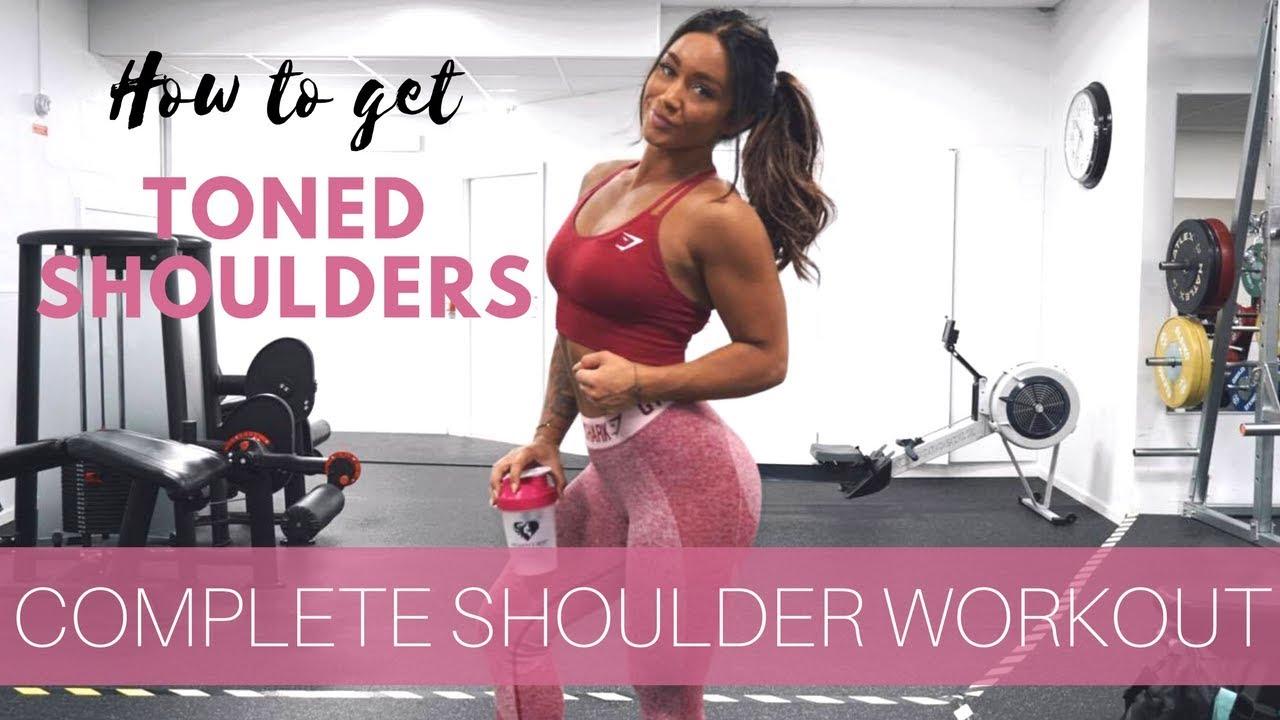
Common Mistakes to Avoid
One common mistake many make when aiming for toned shoulders is neglecting shoulder mobility. Sure, lifting heavier weights feels powerful, but if your shoulders lack flexibility, you’re setting yourself up for potential injury. Engaging in dynamic stretches before your workouts can not only enhance your range of motion—think of exercises like arm circles or band pull-aparts—but also prepare your muscles for more intense activities. Think about it: if your body is locked up tight, will it really be able to effectively activate those shoulder muscles? This approach not only helps you train better but also ensures you’re keeping your joints healthy over time. You can explore more on this in the article Shoulder Mobility Fundamentals.
Another pitfall is focusing exclusively on front deltoids while completely forgetting the rear deltoids. It’s a classic oversight! The shoulders are a complex structure, and only targeting one area can lead to imbalances. When we strive for well-defined shoulders, incorporating a variety of movements is crucial. For instance, mixing in exercises like rear delt flyes and face pulls with your regular shoulder press can create a more well-rounded routine. Have you ever noticed how bodybuilders emphasize their shoulder looks? They often prioritize overall symmetry, which is essential for both aesthetics and functionality. This idea isn’t just hypothetical; studies have shown that balanced training can enhance stability and reduce the risk of injuries.
Lastly, many are tempted to push through workouts at all costs, leading to poor form. We’ve all been there—our ego balloons when we see the weights our gym buddies are lifting. However, compromising your form for added weight doesn’t just make your workouts less effective—it can also lead to discouraging setbacks like strains or tears. Instead, focus on mastering your technique, and progressively increase the weights when your form is solid. For instance, if you can do 10 reps of shoulder presses with perfect form at 15 pounds, that’s where the focus should stay until you feel confident to add more weight. Adopting a mindset of gradual progress can keep your body safe while allowing for consistent improvement. Consider reading up on injury prevention at The Importance of Technique for more insights.
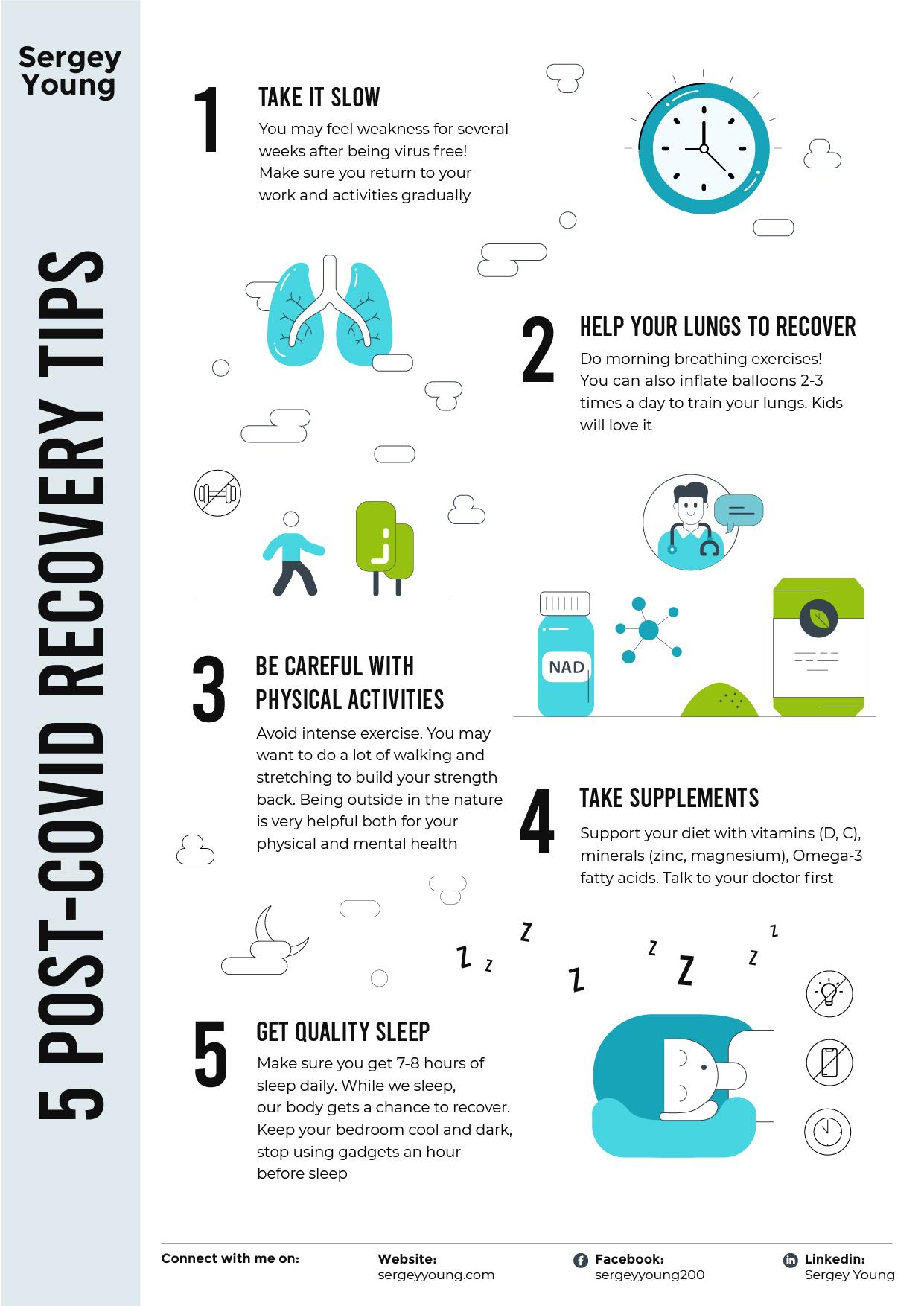
Recovery Tips for Optimal Results
Recovery isn’t just about taking a break; it’s where the magic happens. Ever heard of delayed onset muscle soreness (DOMS)? If you’ve pushed your limits in the gym, you might be quite familiar with that dull ache a day or two after your shoulder workout. While it’s a sign that you’ve worked hard, embracing effective recovery strategies can drastically improve your results. Incorporating active recovery days, such as gentle yoga or light stretching, can help increase blood flow without straining your muscles further. It’s like giving your shoulders a gentle hug instead of letting them languish in pain!
Ever wonder how hydration impacts recovery? It’s critical! Water plays an essential role in nutrient transport and muscle repair. Aim to sip water consistently throughout the day, especially after your workouts. You can also boost your hydration with hydrating foods like cucumbers, watermelon, and oranges. Pair this with a balanced meal rich in protein and healthy fats, such as grilled chicken with avocado, to support muscle repair—your body will thank you with faster recovery times and improved performance. Consider this: studies from the blank”>National Institutes of Health have shown that adequate protein intake, combined with proper hydration, can reduce muscle soreness and enhance recovery.
Lastly, don’t underestimate the power of sleep. It’s during this crucial time that your body repairs itself. According to research from the blank”>National Sleep Foundation, insufficient sleep not only hampers muscle recovery but also impacts overall performance and motivation. Make it a point to establish a relaxing bedtime routine that encourages deep sleep. Try turning off screens an hour before bed, meditating, or perhaps reading a good book. By prioritizing rest, you’ll wake up revitalized and ready to tackle your next session with those shoulders!
Looking Ahead
As you embark on your journey toward sculpted shoulders, remember that consistency and variety are key. By incorporating a mix of strength training, functional movements, and flexibility exercises, you can enhance your results and keep your workouts engaging. So why not set aside some time this week to implement these workouts? Whether you hit the gym or opt for a home routine, every step counts towards your goal. Reflect on your previous shoulder workouts—what has worked for you, and what might you need to adjust? Your previous experiences can guide your growth, and sharing them could inspire others in the community. Embrace the challenge, celebrate your progress, and remind yourself that each session brings you closer to the toned shoulders you desire. Stay focused, stay motivated, and let your commitment shine through as you lift and tone your way to a stronger, more confident you!





